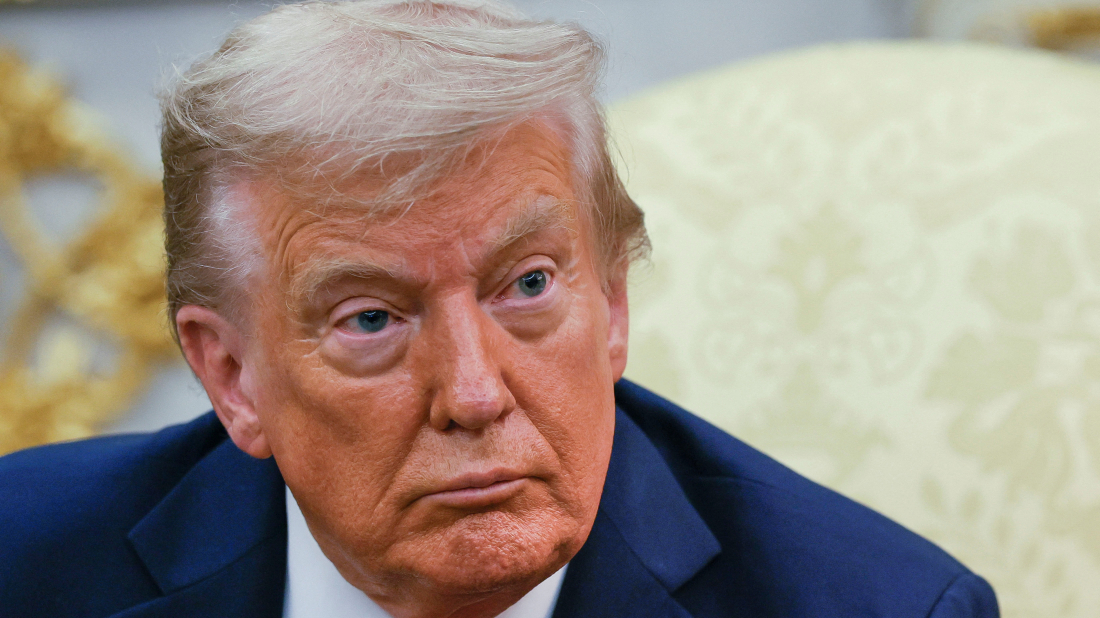The White House: U.S. ground troops ‘not part of plan’ in Iran
The White House says deploying United States ground troops in Iran is not currently part of the military strategy in ...

U.S. President Donald Trump has said he wants to commence denuclearization talks with Russia and China, revisiting an issue he raised earlier as he also seeks to revive stalled diplomacy with North Korea.
“Among the things we are trying to do with Russia and China is denuclearisation, and it is very important,” Trump told reporters ahead of his meeting on Monday with South Korean President Lee Jae Myung at the White House.
“I believe denuclearisation is a significant goal. Russia is willing to pursue it, and I think China will be prepared to do so as well. We cannot allow nuclear weapons to spread. The power is too great,” he added.
Speaking at a separate White House event earlier the same day, Trump said he had already raised the matter with Russian President Vladimir Putin, though he did not specify when the conversation had taken place.
“We are discussing limits on nuclear weapons. We will involve China in that,” Trump said. “China is far behind, but in five years they will catch up. We want denuclearisation. The power is excessive, and that was also part of our talks,” he noted.
Trump’s remarks coincided with his stated wish to meet North Korean leader Kim Jong Un later this year. Kim has so far ignored Trump’s repeated overtures since the Republican took office in January, seeking to restore the direct diplomacy he had pursued during his 2017–2021 presidency, which produced no agreement to halt North Korea’s nuclear ambitions.
Trump first outlined his intention to pursue nuclear arms control in February, saying he wanted to begin discussions with both Putin and Chinese President Xi Jinping on capping their arsenals. Speaking in the Oval Office at the time, he said denuclearisation would be a central goal of his second term and that he hoped talks could begin in the “not too distant future”.
The renewed emphasis on arms control comes as the New Strategic Arms Reduction Treaty (New START) approaches its expiry on 5 February 2026. Signed in 2010, it remains the last nuclear arms pact between Washington and Moscow, limiting the number of strategic warheads and delivery systems each side can deploy.
Russia has already warned this year that the chances of extending the treaty appear slim. Under his predecessor Joe Biden, the U.S. had also pressed China to enter formal arms control negotiations but made little progress.
U.S. President Donald Trump said the U.S. military has enough stockpiled weapons to fight wars "forever"; in a social media post late on Monday. The remarks came hours before conflict in Iran and the Middle East entered its fourth day.
U.S. first lady, Melania Trump chaired a UN Security Council meeting on children and education in conflict on Monday (2 March), a move criticised by Iran as hypocritical following U.S. and Israeli strikes that triggered a UN warning about risks to children.
A torpedo from a U.S. submarine sunk an Iranian warship off the coast of Sri Lanka, U.S. Secretary of Defense, Pete Hegseth told reporters as the Iranian conflcit entered its fifth day on Wednesday.
The U.S. embassy in Riyadh was hit by two drones resulting in a limited fire and some material damage, the kingdom's defence ministry said in a post on X on Tuesday, citing an initial assessment.
Shahid Motahari Sub-Speciality Hospital in northern Tehran and parts of the Golestan Palace were bombed on day two of the U.S.‑Israel strikes. AnewZ Touraj Shiralilou is in Iran's capital city and said that the facility was flattened in an airstrike.
The White House says deploying United States ground troops in Iran is not currently part of the military strategy in the ongoing conflict with Tehran.
Israel has warned residents to leave a significant area in southern Lebanon, instructing them to move north of the Litani River as hostilities with the Iran-backed Lebanese group Hezbollah intensified on Wednesday.
U.S. Defense Secretary Pete Hegseth says the United States is making gains in its conflict with Iran after a key Iranian naval target was destroyed, confirming that the strike was carried out by a U.S. submarine off the coast of Sri Lanka. Rescue efforts are now under way for the ship’s crew.
Start your day informed with AnewZ Morning Brief. Here are the top news stories for the 4th of February, covering the latest developments you need to know.
Strikes across the Middle East are intensifying, fuelling travel disruption, driving up global energy prices and forcing diplomatic missions to shut their doors.
You can download the AnewZ application from Play Store and the App Store.

What is your opinion on this topic?
Leave the first comment